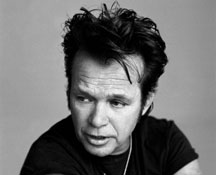April 21, 2011
Distinguished, University Professors named
by Diana Pounds
Five Iowa State faculty members have been awarded the title of Distinguished or University Professor. They will be honored at an April 28 promotion and tenure reception and the Sept. 26 university convocation and awards ceremony. Distinguished Professor awards are given to those who have significantly improved the quality of their disciplines, and University Professor awards are bestowed for exceptional contributions to the university. Following are the honorees -- three new Distinguished Professors and two University Professors:
Joel Coats
Distinguished Professor
Described as the godfather of toxicology at Iowa State, Coats was the primary organizer of the interdepartmental graduate toxicology program, which has risen to national stature in environmental chemistry. Coats is well known for developing insecticides and insect repellents from natural products and for studying the effects of agrochemicals, such as insecticides and veterinary pharmaceuticals, on the environment. His influence on the field of toxicology continues through his many former students who have made important contributions in academia, industry and government.
Coats is a professor in the department of entomology.
Jay-lin Jane
Distinguished Professor
Jane is a world authority in starch research and its food and industrial applications. She developed a digestion-resistant starch that may aid in the fight against colon cancer and diabetes. She led a team to improve the efficiency of ethanol production from raw starch, and the result was a technology that increased ethanol yield 5 to 10 percent. She also has pioneered methods to make molded biorenewable plastics from the proteins in soybeans, corn and chicken feathers. She has 10 U.S. patents. Among her many awards are two of the highest international awards given in starch chemistry.
Jane is a professor in the department of food science and human nutrition.
Kenneth Moore
Distinguished Professor
Moore is an international leader in crop quality and utilization. His research contributed to the development of crops with enhanced nutrient availability and improved management strategies for forage and bioenergy crops. Currently, he's developing best management practices for growing biomass crops (sweet sorghum and kenaf) in Iowa. Moore is the architect of the unique distance education program that allows working professionals to gain a Master of Science in agronomy. He also served as president of two premier international scientific societies.
Moore is a professor in the department of agronomy.
Philip Dixon
University Professor
Today's complex research problems require more sophisticated statistical designs and analysis and greater interplay between science and statistics. Dixon envisioned and orchestrated such a transformation at Iowa State. His work in promoting creative and collaborative interactions between scientists and statisticians has improved the research performed by students, faculty, centers, departments and colleges. Researchers credit him with helping open creative new directions for their programs.
Dixon is a professor in the department of statistics.
Charles Glatz
University Professor
Nationally, Glatz is recognized for his bioseparation research, which involves projects ranging from extracting biopharmaceuticals from plants to finding greener methods to clean up oil spills. On campus, he also is recognized for his diligent efforts, through ISU ADVANCE and many other groups, to encourage women in academic and science careers. He also has played key roles in improving teaching on campus through extensive work with the Center for Excellence in Learning and Teaching, the University Honors program and his own award-winning teaching style.
Glatz is a professor in the department of chemical and biological engineering.
Criteria for the professorships
Through their research or creative activities, Distinguished Professors have significantly impacted or improved the quality of their disciplines. They also have demonstrated outstanding performance in at least one of the following: teaching and advising; extension/professional practice; or institutional service. Recipients receive a $6,000 addition to their base salaries.
Acting as change agents, University Professors have made significant contributions that improved the university. In addition, University Professors have demonstrated outstanding performance in at least one of the following: research and/or creative activities; teaching and advising; or extension/professional practice. Recipients receive a $5,500 addition to their base salaries.
